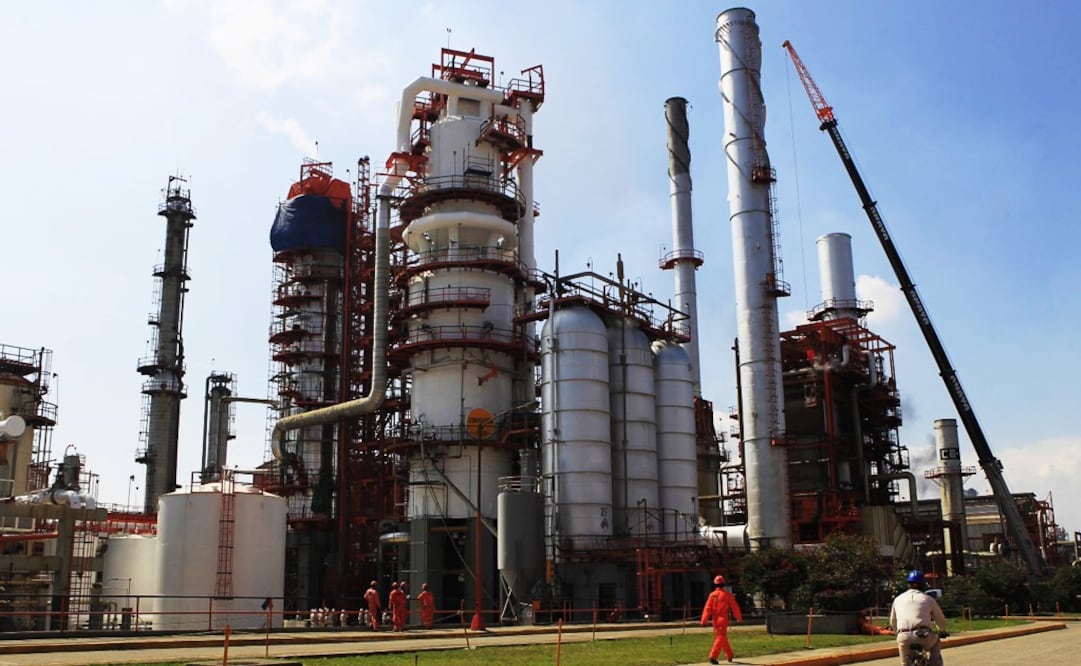The Energy Ministry (Sener) is inspecting the contracts Pemex Industrial Transformation (TRI) directly awarded to Air Liquide México and Gazsur , comprised by the consortium Cryoinfra/Air Products and Chemicals , for the supply of hydrogen to the Tula and Cadereyta refineries for the next 20 years.
The investigation also includes a third operation that Pemex TRI carried out by selling the hydrogen plant in the Madero refinery in Tamaulipas , as its hydrogen supply contracts were directly assigned to Linde Gas North America.
The head of Mexico's energy policy, Rocío Nahle , says that in order to hire these companies, Pemex TRI sold its hydrogen plant U-3400 , located in the Miguel Hidalgo refinery in Tula de Allende, Hidalgo ; the hydrogen plant inside the Ing. Héctor R. Lara Sosa refinery in Cadereyta Jiménez, Nuevo León , and the hydrogen plant U-801, in the Francisco I. Madero refinery in Ciudad Madero, Tamaulipas , so that the private companies could use the land, facilities, and the natural gas supply.
Pemex TR
I has to buy hydrogen from these three companies, with monthly payments of USD $2.7 million : USD $1,470,000 to Air Liquide México; USD $644,000 to Gazsur, and USD $774,000 TO Linde Gas North America.
The strategy, according to documents from the previous administration, was designed to ensure the supply of low-cost, high reliability, and efficiency in the conversion of natural gas to hydrogen and the “reduction of unscheduled shutdowns in these two refineries.”
The contract with Air Products and Chemicals was signed on September 1, 2017, although the Tula refinery went from three unscheduled shutdowns at the beginning of 2018, to 14 at the end of the year.
In Cadereyta , the contracts were signed on July 10, 2018. There were no unscheduled shutdowns during 2018 until October, when it started to register 15 unscheduled shutdowns per month.
In Madero , the contract was signed on April 12, 2018, and during that month, the unscheduled shutdown s increased to 11 per month.
The sale price of the hydrogen plants wasn't included in the documents.
This investigation is part of a larger one, which includes the millions in bribes paid by Odebrecht to Pemex and the former officials linked to fuel theft.
Nahle
visited the refineries to verify how the firms were installed and determine if there was corruption during the operation.
A month ago, Nahle said that during a visit at the Tula refinery, she could confirm that in the facility “in the center is a hydrogen plant , which has to provide hydrogen to the next (installation) to increase its production and I found the plant to be enclosed.”
After asking the workers why it was enclosed, “they told me that they sold it before they left and now we have to pay the new owners almost a million dollars per month so they give us the hydrogen .”
The former Pemex director, Carlos Treviño Medina , said the operation would reduce the costs through contracts with third parties.
According to the contracts , the suppliers are responsible for supplying the Tula refinery with volumes of up to 81.75 million standard cubic feet per day and with a purity of 99.9%.
Cadereyta
will receive 60 million standard cubic feet per day, with a purity of 99.9%, while the Madero refinery will receive 42 million standard cubic feet per day, with a purity of 99.9%. The three refineries signed contracts for the next 20 years.
But at the same time, the contracts establish that Pemex has to give the private companies the necessary inputs and services to generate hydrogen : natural gas, raw water, demineralized water, coolant water, high, medium, and low-pressure steam, plant air, electric energy, and nitrogen.
gm
Noticias según tus intereses
[Publicidad]
[Publicidad]















